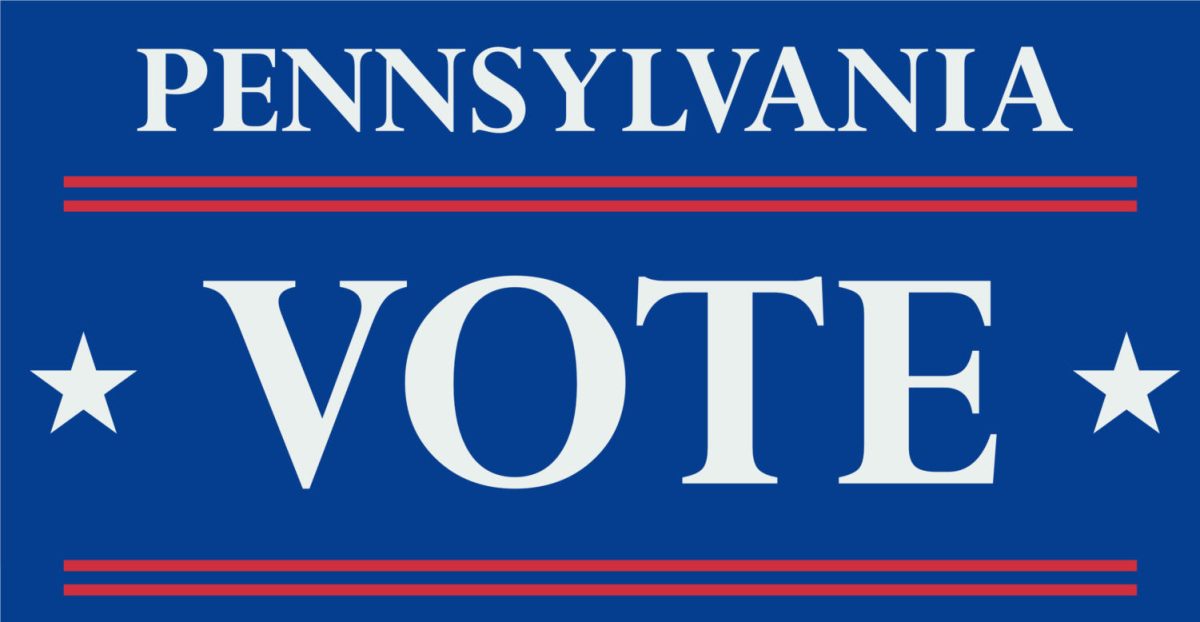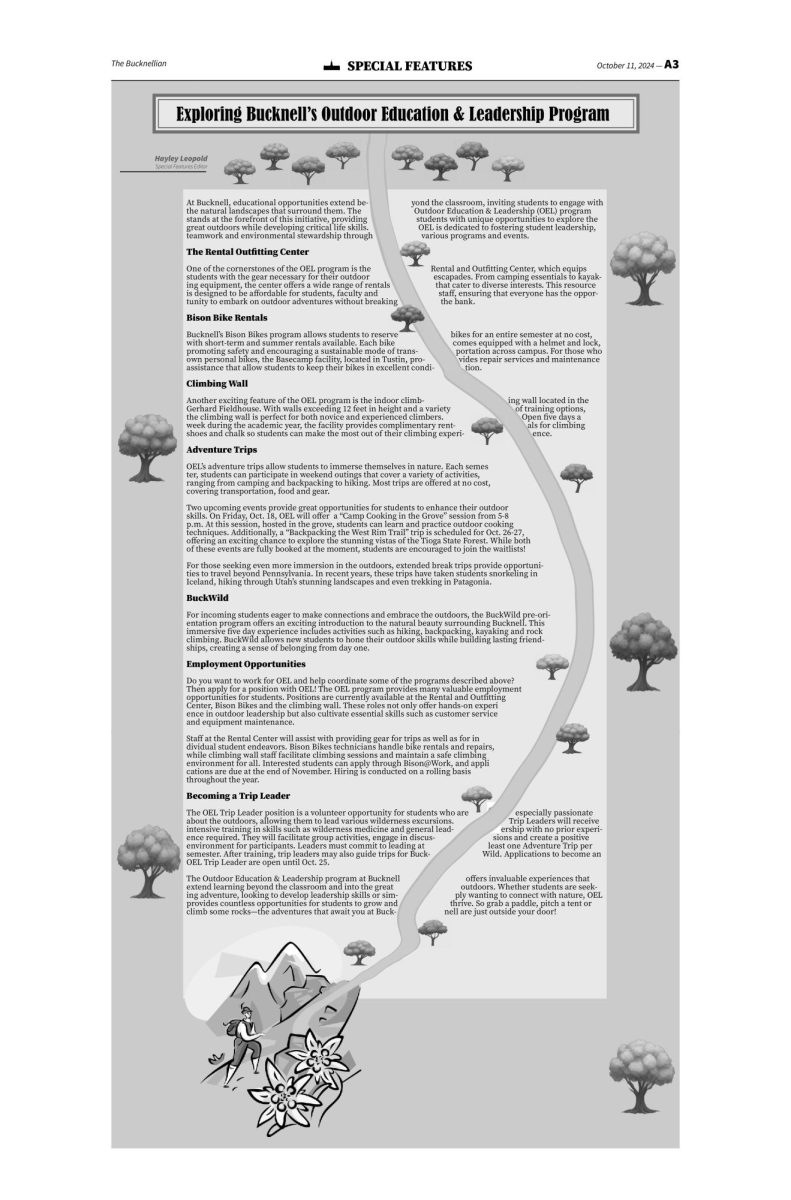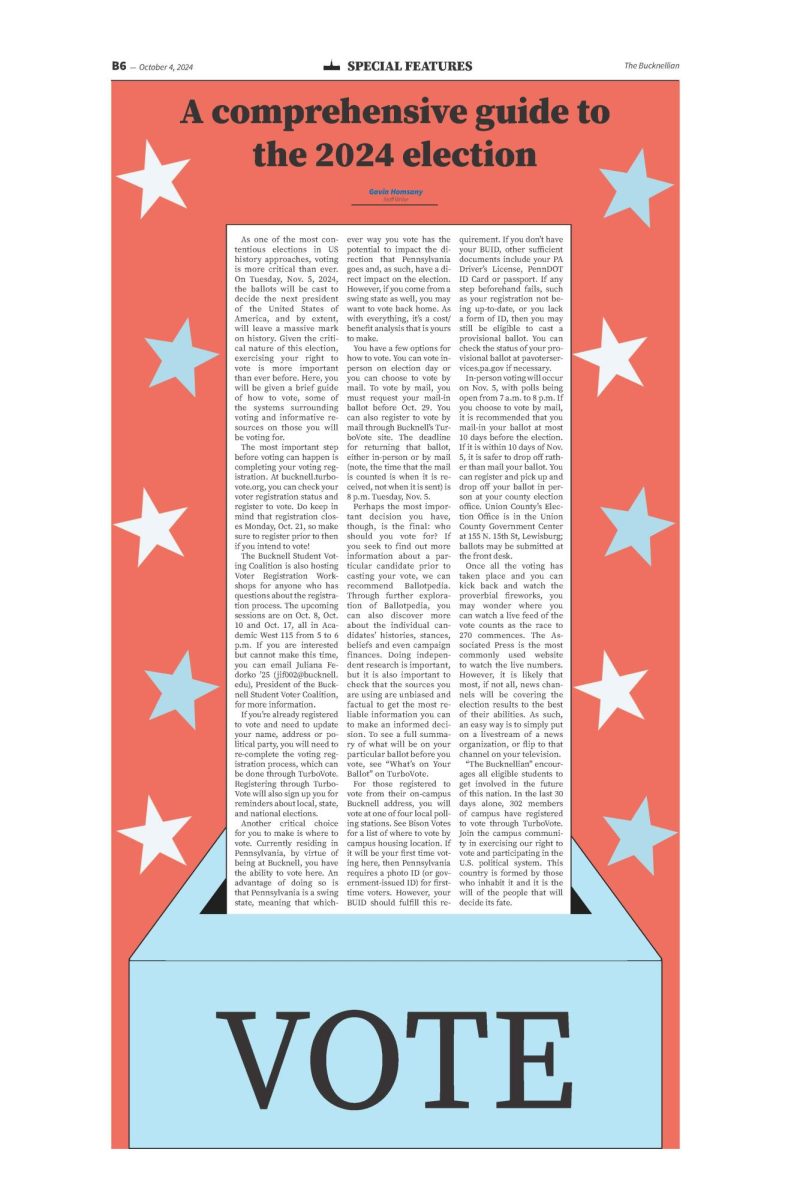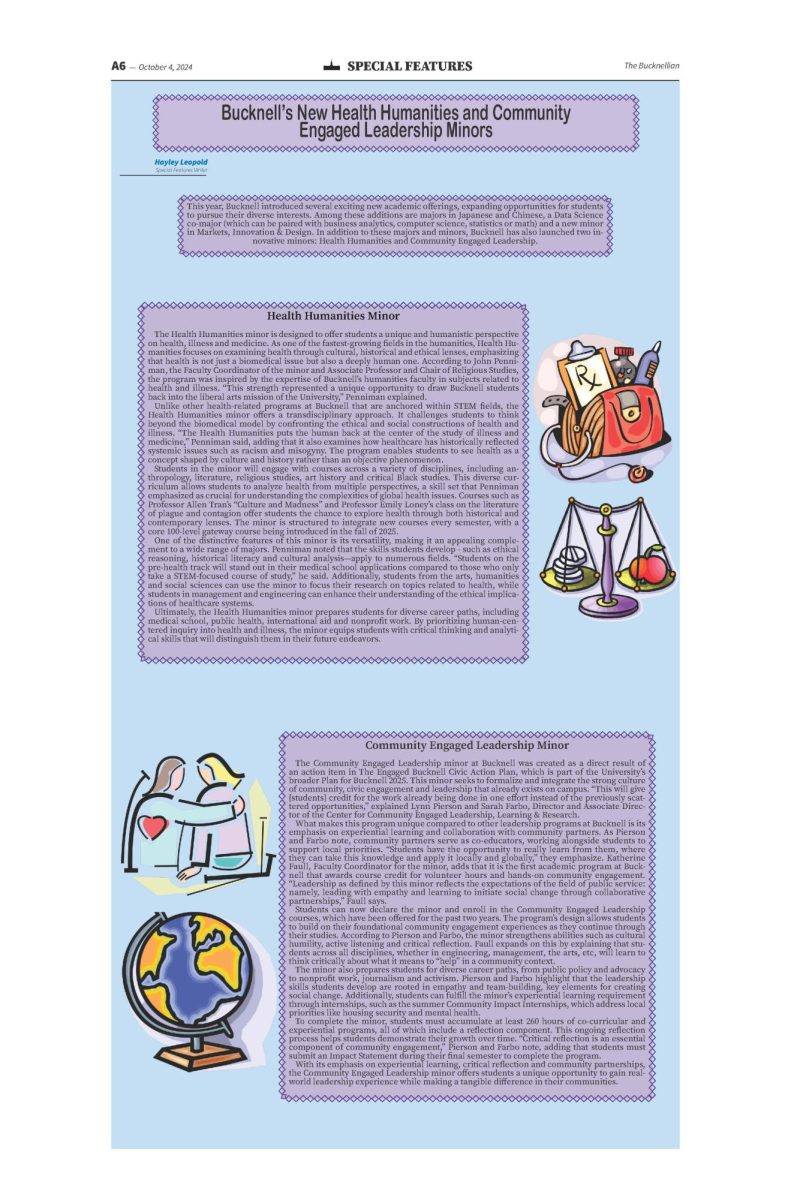President Bravman’s draft of Engaged Bucknell: A Civic Action Plan for the University
January 31, 2019
University President John Bravman signed the Campus Compact 30th Anniversary Action Statement in October 2017. The statement exemplified a public commitment to developing a plan for informed citizenship and forward-thinking skills to help students solve societal problems. Over the past year, a team of University faculty members has worked together to produce the first draft of the civic action plan released on Jan. 23. This draft is the first of many, and there will be feedback sessions that include the community’s opinion.
“The plan is still in draft form and will be finalized only after additional feedback from Bucknell students, staff, faculty, as well as representatives from community partner organizations,” said Coralynn Davis, a Faculty Director, Professor of Women’s and Gender Studies, and a Co-Chair of the Civic Action Plan Task Force.
Overall, the main goal of the plan is stated in the rationale section of the draft: “Consistent with our history of civically-engaged learning, this Civic Action Plan is designed to enhance the university’s capacity to fulfill its mission…to educate its students to mature into ethical persons with the capacity to respectfully engage different cultures and perspectives, as well as to serve the public good. The proposed efforts, when adopted, will continue to support the Plan for Bucknell by not only helping to ‘build bridges’ and ‘enhance diversity,’ but also to ‘deepen the residential experience’ and ‘strengthen the academic core.’”
Georgina Dodge, the Associate Provost for Diversity, Equity and Inclusion explained, “Civic engagement should be seen as an intentional and integral part of our campus culture. It is not merely some type of curricular add-on or a box that we check, it should be part of a Bucknell education that prepares students to function and contribute in a democratic society.”
The Civic Action Plan Task Force incorporated five main ideas into the draft. The first goal prioritizes the integration of civic engagement into the academic curriculum and extracurriculars. The second goal emphasizes the coordination of campus activities in relation to issues of public concern. Thirdly, they are looking to increase access to civic engagement opportunities. The fourth goal is to encourage reciprocity within the community. Lastly, the committee hopes to clearly communicate the University’s dedication to improving civic engagement around campus and beyond.
“It is important that we create appropriate systems that recognize the effort that faculty put into developing and shepherding civic-engagement focused courses,” Dodge said. “We also need to engage in discussions that enable us to recognize the many different forms that civic engagement can take across the disciplines—not all courses require students to conduct work off campus; there are ways to be civically engaged from our current classrooms.”
Currently, The Office of Civic Engagement plays an integral role in enhancing a service-learning academic experience. This experience helps students cultivate intellectual growth in becoming educated citizens.
Further evidence of the expansion of civic engagement in our community is exemplified through service-learning and community-based learning courses. Incorporation of civic engagement components into courses encourages the connection between students and the community. According to the civic action plan, students reported that these types of courses challenged them intellectually, helped them understand issues from multiple perspectives, and taught them to be more appreciative of diversity.
“We want students to leave Bucknell with some experience of what it means to take action as a member of a community, to help provide a solution to an issue, or to be part of something larger than themselves,” Dodge said.


























